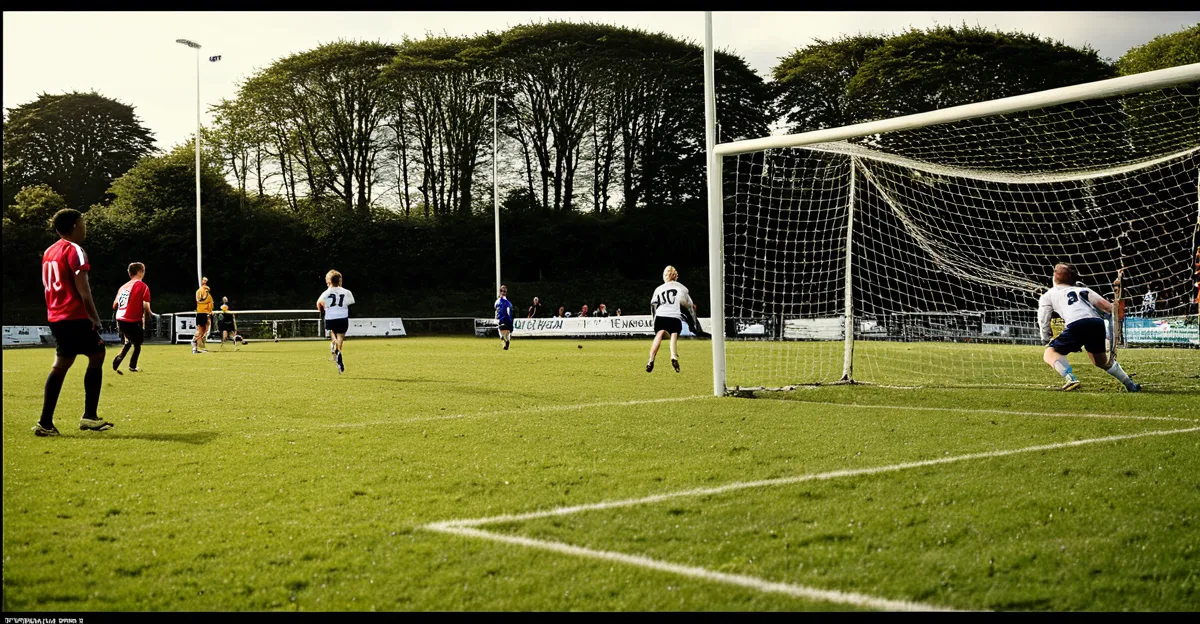Impact of Grassroots Sports Programmes on Community Cohesion in the UK
Grassroots sports play a vital role in enhancing community cohesion across UK local communities. By bringing people together through participation and shared experiences, these programmes strengthen social bonds, creating a sense of belonging that transcends age, ethnicity, and background.
One of the key impacts is fostering inclusivity. Grassroots sports provide accessible opportunities where individuals from diverse groups can cooperate and compete on equal footing. This environment encourages understanding and respect, breaking down barriers that often divide communities.
This might interest you : How Can We Support Emerging Athletes in the UK?
Successful examples illustrate how grassroots sports act as a powerful tool for community integration. Local football clubs, for instance, can unite residents of different cultural backgrounds, promoting friendship and cooperation. Moreover, sports events organized at the grassroots level often involve community volunteers, further embedding social connections.
The sustained involvement in grassroots sports nurtures trust and collaboration, which benefits the wider community beyond the playing field. In a society increasingly marked by fragmentation, these programmes offer a practical and enjoyable way to bring UK local communities closer together, enhancing social well-being and resilience.
Also read : What Are the Most Anticipated Events in UK Sports This Year?
Role of Grassroots Sports in Youth Development
Grassroots sports play a crucial role in youth development, especially in the context of UK youth engagement. By providing accessible and structured activities, grassroots sports foster essential life skills such as teamwork, leadership, and communication. Young participants learn to collaborate, respect others, and take on responsibilities, which are transferable to all aspects of their lives.
Moreover, engaging youth in regular sports activities at the grassroots level has proven effective in reducing youth crime and anti-social behaviour. Structured sports programmes offer a positive outlet for energy and emotions, steering young people away from potentially harmful activities. This positive engagement helps build a sense of belonging and community pride, further reinforcing good behaviour and personal growth.
Local initiatives often demonstrate measurable youth outcomes, showing improvements in self-esteem, physical health, and social inclusion. Community clubs and schools implementing grassroots sports consistently report increased engagement levels and a decrease in negative behaviours among participating youth. These outcomes confirm that grassroots sports are not just about physical activity; they are a powerful tool for nurturing confident, responsible individuals ready to contribute positively to society.
Effects on Social Inclusion and Diversity
Social inclusion and diversity in sports are crucial for fostering equality and broadening sports access. Many UK grassroots initiatives actively work to increase participation among marginalised and underrepresented groups. By addressing financial, cultural, and physical barriers, these programmes create opportunities for communities historically excluded from sports.
Promoting gender equality is a prime focus, with targeted efforts encouraging female participation in traditionally male-dominated sports. Similarly, initiatives aimed at disability inclusion ensure accessible facilities and tailored coaching, enabling individuals with disabilities to engage fully and confidently.
Examples of these programmes include community-led clubs and local authority projects focusing on removing social obstacles. They offer support such as subsidised memberships and inclusive training sessions. This approach not only enriches the sporting landscape but also nurtures a welcoming environment that reflects the diversity of UK society.
These efforts demonstrate a commitment to social inclusion by recognising and dismantling the specific challenges faced by diverse populations. Understanding the importance of inclusive sports access drives continuous improvement in existing initiatives, helping to create a more equal and representative grassroots sports culture.
Economic Impact on Local Communities
Grassroots funding plays a crucial role in stimulating the local economy by generating a range of economic benefits. One of the most direct impacts is job creation. Grassroots sports programs frequently create employment opportunities, from coaches and support staff to event organizers, which supports families and injects income back into communities.
Moreover, hosting grassroots events and leagues brings increased footfall to the area, boosting local business. Restaurants, shops, and accommodation providers often see a surge in customers during tournaments or regular game days. This pattern is a testament to how grassroots sports serve as a catalyst for wider economic activity.
Studies examining the economic benefits of grassroots sports consistently show a positive correlation between investment and community uplift. For example, research indicates that every dollar invested in grassroots funding circulates through the local economy, enhancing its vitality. Additionally, volunteers attracted to these events contribute value by supporting operations without heavy financial outlay.
In summary, grassroots funding drives job creation and enhances the local economy by increasing demand for goods and services, creating a sustainable uplift for communities invested in sports development. The resulting economic benefits extend beyond the sports field into the heart of community well-being.
Health and Wellbeing Outcomes
Exploring the positive impact of sports participation
Engaging in sports offers significant health benefits, primarily through increased physical activity that helps reduce inactivity rates. Regular participation helps maintain cardiovascular health, improves muscle strength, and supports healthy weight management, lowering the risk of chronic diseases such as diabetes and heart disease.
Beyond the physical benefits, sports play a crucial role in enhancing mental wellbeing. Participation in grassroots programmes fosters social interaction and develops a sense of belonging, which reduces feelings of isolation and anxiety. These programmes often provide accessible opportunities that encourage sustained involvement, leading to long-term mental health improvements.
UK-based research highlights that community sports involvement correlates strongly with better self-reported health and lower levels of depression. For example, data shows that individuals regularly involved in sports report higher life satisfaction and reduced stress levels. Grassroots initiatives also increase accessibility, ensuring more people experience these benefits.
Promoting sports participation through diverse and inclusive programmes is vital for building healthier communities. By embedding physical activity into daily routines, these efforts substantially improve both physical and mental wellbeing at a population level.
